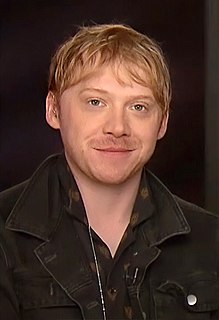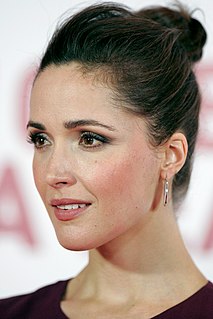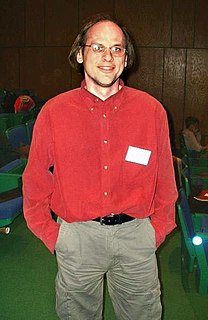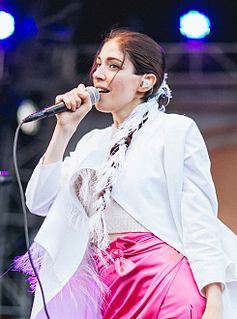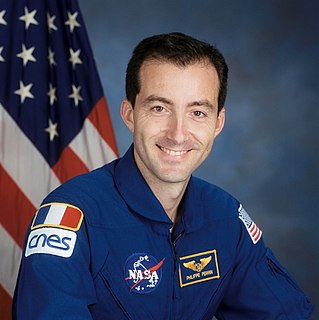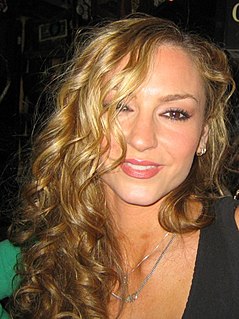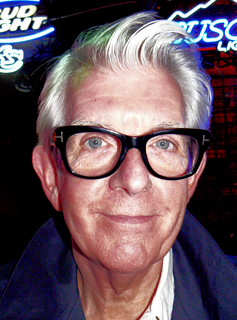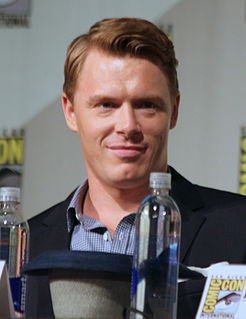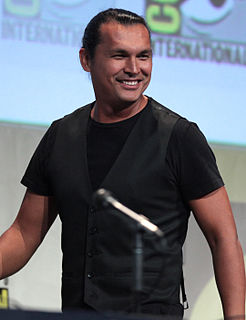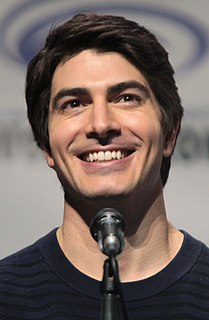A Quote by Kate Winslet
Just coming to terms with the fact that I got to play April Wheeler [Revolutionary Road] and Hanna Schmitz [The Reader] in one year, let alone in my lifetime. I'm very, very aware of how rare that is as an opportunity for any one person. I can't tell you how much I've been able to take away from these experiences creatively. I really, really learned so much about acting, about myself... all of those things. It's difficult to talk about the actor's process without sounding like an arrogant asshole but they really were very challenging.
Quote Topics
Able
About
Acting
Actor
Alone
Any
April
Arrogant
Aware
Away
Been
Challenging
Coming
Creatively
Difficult
Experiences
Fact
Got
How
How Much
Just
Learned
Lifetime
Like
Much
Myself
Opportunity
Person
Play
Process
Rare
Reader
Really
Revolutionary
Road
Take
Talk
Tell
Terms
Things
Those
Very
Were
Without
Year
Related Quotes
I was such a huge fan of Harry Potter books. That's how I got into it. I had never really thought about acting or a career. I just wanted to be Ron, really. It was a very unusual introduction into the industry, and we learned so much. It's been a real education and an evolution. I really, really enjoy this.
I think people are uncomfortable seeing pregnant women, particularly with any kind of conflict. [Pregnancy is] very much a projection of life and love, but it's also very complicated. People have very complicated pregnancies. They could be accidental or people suffer depression, and that was a really interesting thing for me. And a challenging thing. I have not been pregnant. I don't know what that's like, let alone to be really conflicted about it. Acting in the film about pregnancy was a really interesting thing to do.
Sexuality is a place where people are very vulnerable and can be experiencing and embodying very raw forces that they don't really understand and there's a question of how much you should control and how much you should play with those and what those forces really are, how you really feel about them. That's perennial.
Mathematics can have its problems, but it's actually hasn't seen a lot of the problems as some of the other sciences and so much of it in what people are doing is completely useless. Nobody kind of in really cares very much. You don't really have kind of right and left and people in ideology coming in because there isn't any. It just doesn't actually connect up to the kinds of things that people ideologically worry about. So most of mathematics just doesn't tell you anything one way or another about global warming or about healthcare or about any number of things that you might care about.
I would say that I learned that the heartbreak wasn't as much about me as the fact that my partner wasn't right with himself. I see where his life has taken him, and realize that the handwriting was on the wall. There were things that I had blamed myself for, but it was really more about his choices, his needs and his journey as a person. His desire for too much of everything made it a challenging relationship.
The visual stuff just lives inside of you. As far as really being able to take care of an actor on a set, how to talk to an actor, and how to get what you need out of a scene is probably where I might know a thing or two. Although, in TV, the actors are pretty much left alone. It's really the writer's medium more than anything.
I think any information about any type of art form, it's always the right time. But since the last one, I could see there were many things about the culture of DJing that we don't really talk about. We don't really look at how the music is made, how it's conceptualized, how it's put together. We talk about the equipment and the software, but we don't talk about the reasons why we put the music together in the first place.
I mean, the way I'm talking, it sounds like I'm - you know, I'm about to go out and sign up for the nearest seminary, and you'll never see or hear from me again. But it's a hard thing to talk about really 'cause I'm not at all sure myself about it. But I've got a very, very simple sort of outlook to it. Yeah, that's all I can say, really.
Things are so busy and so quick, and there’s so much going on, you have to realise the time when you have to take a step back, take a breath and really think back to where you come from. I’m from a very, very rural place. There’s really nobody out there, just roads and farms. I had a long transition to get to where I am now. I moved away when I was young, when I was about 19. I’d literally come from an area with dirt roads and stuff like that, right to the centre of a city of about five million people. It’s been great. I’m based in New York and every day it's amazing.
Really it's all about what's inside the Superman suit. How you feel about yourself when you put that on because it's very revealing and very imposing if worn with confidence, I suppose. The first time I wore it, I didn't have that as much. I hadn't really trained any, yet. I hadn't read the script, I hadn't really worked on the character at that point. And I was standing around with a room full of costume designers and everybody was judging me right away and going, "Don't make your judgment on it, if this is Superman quite yet or not," because I hadn't done all the work that I would later do.

